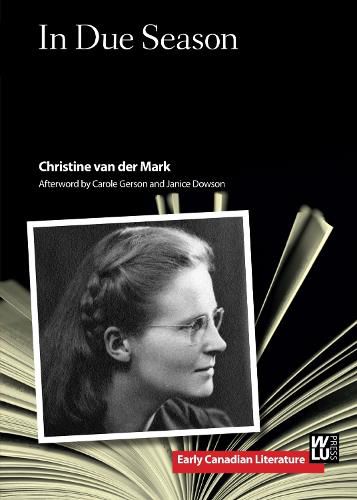Readings Newsletter
Become a Readings Member to make your shopping experience even easier.
Sign in or sign up for free!
You’re not far away from qualifying for FREE standard shipping within Australia
You’ve qualified for FREE standard shipping within Australia
The cart is loading…






First published in 1947, In Due Season broke new ground with its fictional representation of women and of Indigenous people. Set during the dustbowl 1930s, this tersely narrated prize-winning novel follows Lina Ashley, a determined solo female homesteader who takes her family from drought-ridden southern Alberta to a new life in the Peace River region. Here her daughter Poppy grows up in a community characterized by harmonious interactions between the local Metis and newly arrived European settlers. Still, there is tension between mother and daughter when Poppy becomes involved with a Metis lover. This novel expands the patriarchal canon of Canadian prairie fiction by depicting the agency of a successful female settler and, as noted by Dorothy Livesay, was
one of the first, if not the first Canadian novel wherein the plight of the Native Indian and the Metis is honestly and painfully recorded.
The afterword by Carole Gerson and Janice Dowson provides substantial information about author Christine van der Mark and situates her under-acknowledged book within the contexts of Canadian social, literary, and publishing history.
$9.00 standard shipping within Australia
FREE standard shipping within Australia for orders over $100.00
Express & International shipping calculated at checkout
First published in 1947, In Due Season broke new ground with its fictional representation of women and of Indigenous people. Set during the dustbowl 1930s, this tersely narrated prize-winning novel follows Lina Ashley, a determined solo female homesteader who takes her family from drought-ridden southern Alberta to a new life in the Peace River region. Here her daughter Poppy grows up in a community characterized by harmonious interactions between the local Metis and newly arrived European settlers. Still, there is tension between mother and daughter when Poppy becomes involved with a Metis lover. This novel expands the patriarchal canon of Canadian prairie fiction by depicting the agency of a successful female settler and, as noted by Dorothy Livesay, was
one of the first, if not the first Canadian novel wherein the plight of the Native Indian and the Metis is honestly and painfully recorded.
The afterword by Carole Gerson and Janice Dowson provides substantial information about author Christine van der Mark and situates her under-acknowledged book within the contexts of Canadian social, literary, and publishing history.